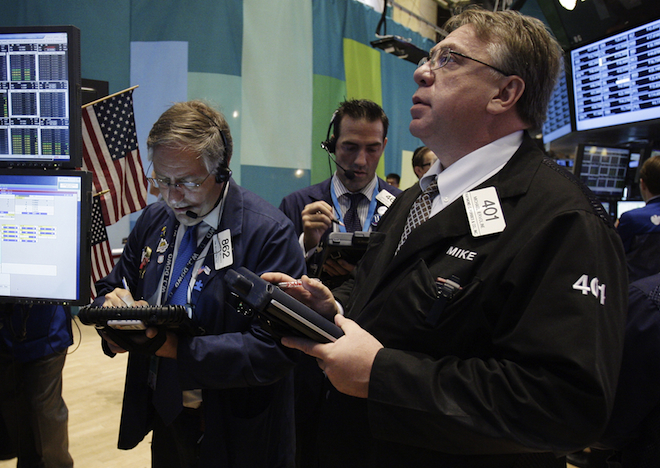Whether they like him or not, a number of Wall Street analysts are publicly predicting that President Obama is likely to be re-elected.
They’re not idle predictions, either. Party strategists and reporters aren’t the only ones who get paid to evaluate the presidential landscape — firms routinely hire analysts or “political intelligence” firms to predict election outcomes or, more importantly, game out legislative scenarios on Capitol Hill. While partisans may have the luxury of optimism as to whether their candidate might prevail, investors need to keep a clear head if they want to predict whether the health care companies will be transformed by Romney repealing Obamacare or the defense industry pinched by the upcoming sequester.
Thomas Block, an independent analyst who previously served as government policy strategist for JP Morgan Chase, told TPM that he’s been advising clients as of mid-September that Romney is in bad shape.
“I think the immigration issue is hurting Romney in Florida, I think his auto position is hurting him in Ohio,” he said, citing recent survey data. “Obama leading in a FOX News poll can’t be good for Romney.”
That seems to be a popular opinion in the finance world. Citi’s senior political analyst, Tina Fordham, has been predicting an Obama win for some time in research notes for investors. “Obama has led in the polls all year, and history suggests that incumbent presidents who maintain their lead go on to be re-elected,” she wrote in September. Moody’s Analytics’ Xu Cheng, who uses a state-based economic model, projects an Obama win as well, with the president carrying Virginia and Ohio while losing Florida. Another model by LPL Financial that tracks investments that would be affected by a Democratic or Republican victory sees the market already preparing for an Obama win. And an informal poll of over 200 traders by Business Insider found 65% expected Obama to win, regardless of their own preference.
As Obama’s post-convention lead refuses to dissipate, financial analysts are working to determine the implications for the upcoming fiscal cliff, which could slash defense contracts, squeeze health care providers, spike tax rates, and generally drag down the economy — perhaps even into another recession.
Block considers his proudest moment as an analyst predicting that House Republicans would reject the first bank bailout proposal in the early days of the 2008 financial crisis and bring down the stock market, giving his clients a few hours’ lead time. (“If they listened to me … and put some money behind the call, they may have made money.”) And, like most private sector political pundits, he’s spent months trying to determine the ripest conditions for a similar disaster.
In a report he prepared for JP Morgan in August, Block argued that the most dangerous outcome for investors — and one that looked highly plausible at that time — was one in which Obama defeated Romney, but Democrats lost the Senate. The result would mean Republicans had more motivation to dig in their heels and delay a deal until after their new members take office in January.
One excerpt from his presentation pegged the chances of a worst-case scenario at 15%:

With the Senate looking less likely to change hands, however, investors might be breathing at least a little easier. “If the status quo exists, there’s a greater chance of starting to make progress on the resolution during the lame duck session,” Block told TPM.
Still others are concerned that the partisan divide may be too great to avoid a prolonged standoff. Former House and Senate budget aide Stan Collender thinks Wall Street analysts may be too naive in general about Congress’ ability to get things done.
This post has been updated.






